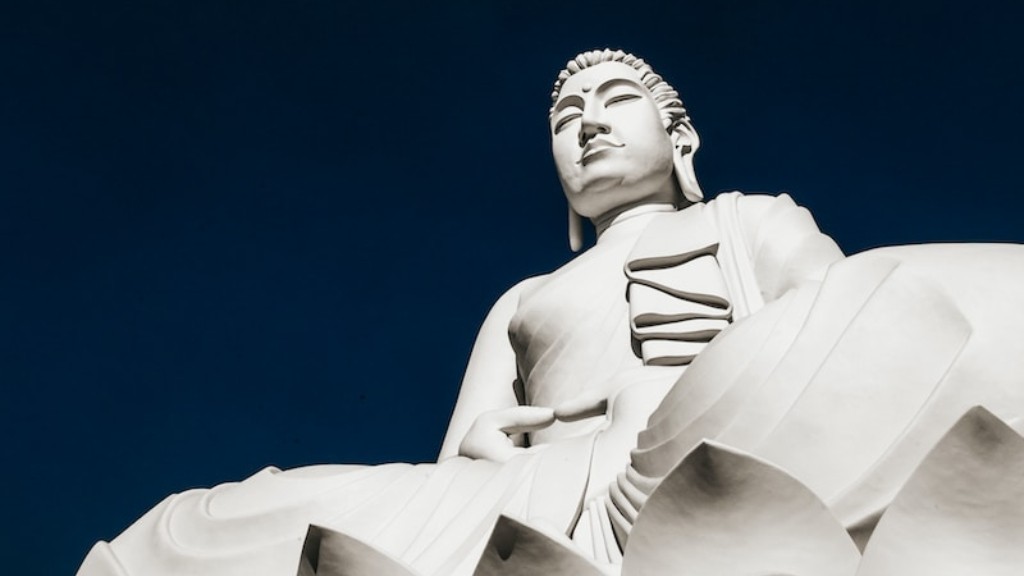Hinduism
Hinduism is the oldest religion in the world and it has been mainstream for more than 5,000 years. It is often regarded as the world’s most ancient religion, with its origins dating back to antiquity. It is based on the spiritual and cultural philosophies of India, and is a combination of beliefs, values, and practices that are found in the Vedic, Upanishadic and Sankrit traditions. Hinduism is also known for its traditional deities such as Brahma, Vishnu, and Shiva, and for its rituals, worship, and practices.
Hinduism has no single founder. In fact, the religion is said to have emerged in multiple forms over the course of thousands of years, through the teachings and writings of various ancient Indian spiritual teachers. These teachers, known as “sages” or “rishis”, were responsible for the formation of Hindu religious texts, known as the Vedas. The first and most ancient of the Vedas is believed to have been written by a sage named Vyasa, between 1500 and 500 BC. The other texts, known as the Upanishads, were written by various authors between 800 and 300 BC.
Hinduism is an all-encompassing religion. It encompasses a wide range of beliefs, rituals, and practices, and is often referred to as a “Way of Life” or “Family of Religions”. This includes the beliefs and practices of reincarnation, karma, the caste system, and the importance of dharma. Hinduism also has a strong emphasis on spiritual growth and encourages its followers to seek the inner truth. It is often referred to as a pantheistic religion and its followers believe in a Supreme Being – or Absolute Reality – with many different forms, called ‘devas’ or ‘deities’.
Hinduism is often referred to as the “third largest religion” in the world, behind Christianity and Islam. It is practiced by approximately 1.2 billion people in India and other parts of the world. India is also the birthplace of some of the core elements of Hinduism, such as the Bhagavad Gita and the Vedas. The religion is deeply rooted in the culture of India and has had a huge influence on arts, literature, and architecture in the country for centuries.
Hinduism does not have a single founder or leader, however there are several important figures in the religion’s history who have had a significant impact. These include the ancient sages, such as Vyasa, as well as Mahatma Gandhi, who was instrumental in the struggle for independence in India. Swami Vivekananda is also an important figure in Hinduism, as he was one of the earliest and most influential Hindu gurus to bring yoga and meditation to the western world.
Hinduism is widely seen as a peaceful and tolerant faith, and its followers strive to live their lives in harmony with nature and the Divine. It is a deeply spiritual faith and its teachings focus on spiritual growth, self-realization, and acceptance of the Divine will.
The Teachings of Hinduism
Hinduism is a religion that centers around a diverse set of beliefs, rituals, and customs, many of which have been developed over a span of thousands of years. One of the hallmarks of this religion is its emphasis on service to one’s fellow man. This is seen in the practice of Ahimsa, or non-violence, which emphasizes the importance of treating all creatures with respect and dignity. Other Hindu teachings include the practice of Dharma, which stresses the importance of personal responsibility, as well as the performance of various Karma Yogas, which are designed to lead to spiritual growth.
Hinduism also places an emphasis on the need to practice self-discipline and cultivate spiritual wisdom. Through the practice of meditation, Hindus believe that one can gain insight into the truth of the universe and the divine nature of reality. This practice also helps individuals to understand their connection with the divine and how their actions can lead to spiritual transformation.
Hinduism also encourages its followers to lead a life of spiritual contemplation and inquiry. These activities help to bring a sense of harmony and peace of mind, as well as to bring individuals closer to the divine. Additionally, Hindus believe in the importance of living a life of compassion and loving kindness. This involves service to one’s fellow man, as well as living a life of contentment and detachment from material possessions.
Hinduism also emphasizes the need to practice austerity, which refers to the practice of leading a simple and humble life in order to stay focused on one’s spiritual practice. This includes refraining from unnecessary activities, as well as avoiding any kind of wrongdoing, or that which would bring harm to another.
The Gods of Hinduism
Hinduism is a polytheistic religion, which means that it recognizes and worships multiple gods, known as “devas” or “deities”. These gods are seen as manifestations of the Supreme Being, or Ultimate Reality, and they embody various aspects and qualities of the divine. The most important deities in Hinduism are the triad of Brahma, Vishnu, and Shiva. Brahma is seen as being the creator of the universe, Vishnu is the sustainer, and Shiva is the destroyer.
In addition to the triad, there are numerous other gods in Hinduism. Many of them are associated with particular kinds of activity, such as Lakshmi, the goddess of wealth and prosperity, and Ganesha, the god of knowledge and learning. Other gods represent specific elements, such as Varuna, the god of water, and Agni, the god of fire.
Hindus also believe in a Supreme Being, known as Brahman, which is the ultimate reality behind all of the gods and all of existence. Brahman is seen as being omnipresent and all-pervasive, and is the source of all truth and all love. Hindus also believe that Brahman can be experienced through various spiritual practices, such as meditation and contemplation.
Hindu Scriptures
Hinduism has numerous sacred texts, known as “shruti” and “smriti” scriptures. These are seen as being divinely revealed, and Hindu followers believe that they contain timeless wisdom and spiritual truths that can guide and inspire them on their path. The most important of these texts is the Vedas, which are a collection of sacred hymns and spiritual teachings, believed to have been written by ancient sages and ascetics.
The Vedas are composed of four distinct sections, or “mandalas”. The first of these sections is the Rig Veda, which is the most ancient of all the Vedas, and is believed to have been composed by Vyasa between 1500 and 500 BC. The Rig Veda is a collection of hymns and prayers dedicated to various gods and goddesses, and is seen as being the foundation for the Hindu religion.
The other sections of the Vedas are the Sama Veda, which is a collection of chants and verses that were used in the performance of religious rituals, the Yajur Veda, which is a collection of prayers and other ceremonial rituals, and the Atharva Veda, which is a collection of ancient spells and incantations used for spiritual healing and protection.
In addition to the Vedas, there are several other important texts in Hinduism, such as the Upanishads, the Bhagavad Gita, and the Puranas. All of these texts are filled with spiritual wisdom, and are seen as important guides on the path to self-discovery and spiritual transformation.
Hindu Religious Practices
Hinduism has various religious practices associated with it, many of which date back to antiquity. One of the most important is puja, which is a ritual that Hindus perform as an act of worship and devotion to one or more gods. During puja, offerings are made to the gods or goddesses, and various mantras or prayers are recited.
Another important practice is called Yoga, which is the practice of physical and mental exercises to help bring an individual to a higher state of spiritual consciousness. Through the practice of yoga, one can become aware of their divine nature, as well as the interconnectedness of all life.
Hinduism also has several major festivals throughout the year, such as Diwali, which is a five-day celebration of lights and the victory of good over evil. Other major festivals include Holi, which celebrates the coming of spring, and Raksha Bandhan which celebrates the bond between siblings.
Hinduism has also played an important role in Indian culture, as its wisdom and teachings have had a profound influence on the nation. Many of India’s moral and ethical values, as well as its legal and political systems, are rooted in the religion’s teachings.
Hinduism and Other Religions
Hinduism is a religion of tolerance and openness, and its followers are taught to respect and accept the truths found in other religions and spiritual paths. This openness and acceptance of other faiths is seen in the practice of ahimsa, or non-violence, which stresses the importance of treating all beings with respect and compassion. Hindus are also encouraged to see the divine in all things, regardless of religious or spiritual beliefs.
In recent years, Hinduism has seen a resurgence in India, as well as the emergence of various Hindu spiritual movements throughout the world. These include movements such as Vedanta, which seeks to bring the teachings of the Vedas to the modern world, and Raja Yoga, which focuses on relaxation, meditation, and ethical living. Additionally, there are numerous Hindu temples and spiritual centers that can be found around the globe.
Hinduism is a religion that has enriched the lives of billions throughout the ages, and continues to spread its message of peace and love. Its teachings are timeless and are relevant to all who seek to experience spiritual growth and a deeper connection to the divine. The wisdom and insights of this ancient faith continue to enlighten and empower its followers, inspiring them to lead lives of compassion and acceptance.


